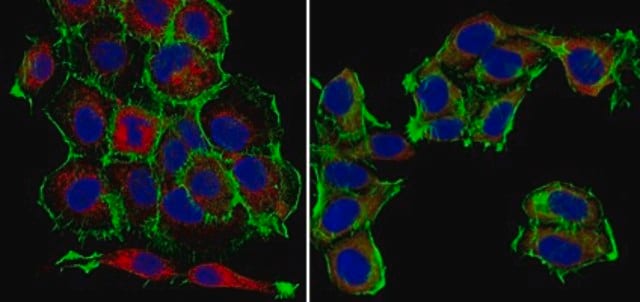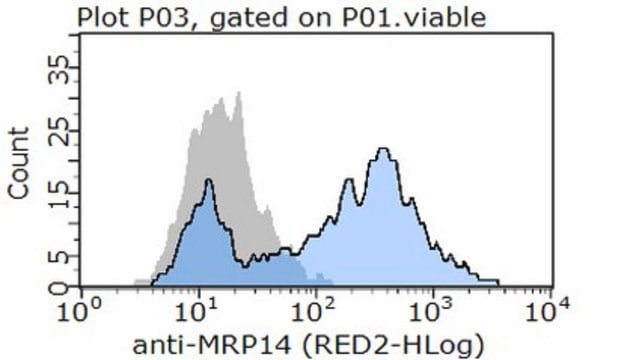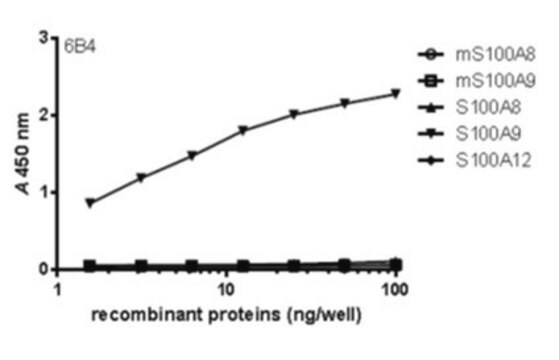PMEF-CFL
EmbryoMax® Primary Mouse Embryonic Fibroblasts
Synonym(s):
CF-1 MEF Feeder Cells, CF-1 MEFs, CF-1 PMEFs, CF1 Mouse Feeder Cells, MEF Feeder Cells, CF-1 PMEFs, CF-1 MEFs, MEFs, Mouse Feeder Cells
About This Item
Recommended Products
biological source
mouse
Quality Level
manufacturer/tradename
Specialty Media
EmbryoMax®
technique(s)
cell culture | stem cell: suitable
input
sample type: human embryonic stem cell(s)
sample type: mouse embryonic stem cell(s)
sample type primary embryotic fibroblasts (PMEFs)
sample type induced pluripotent stem cell(s)
shipped in
liquid nitrogen
1 of 4
This Item | ABF32 | MABF276 | MABF854 |
|---|---|---|---|
| clone 9D5.1, monoclonal | clone polyclonal | clone 17, monoclonal | clone 6B4, monoclonal |
| antibody form purified immunoglobulin | antibody form affinity isolated antibody | antibody form purified immunoglobulin | antibody form purified immunoglobulin |
| biological source mouse | biological source rabbit | biological source mouse | biological source mouse |
| species reactivity human, mouse | species reactivity mouse, rat, human, horse | species reactivity human | species reactivity human |
| isotype IgG1κ | isotype - | isotype IgG1κ | isotype IgG1κ |
General description
Plating MEF Feeder Cells
Procedure:
1. Prior to thawing PMEF feeder cells, coat plates/flasks with Gelatin solution.
2. Thaw PMEF vial(s) quickly in a 37 °C water bath and transfer to a 15 mL tube (already containing 10 mL of warm PMEF Feeder Cell Medium). Gently invert the tube to distribute, and centrifuge at 300 xg for 4–5 minutes.
3. Remove supernatant and resuspend the cell pellet in warm PMEF Feeder Cell Medium.
4. Remove the Gelatin solution from plates/flasks, and aliquot the PMEF feeder cell suspension at the densities recommended in Table 4.1 of the mouse ES protocol guide
5. Incubate the PMEF Feeder cells at 37 °C with 5% CO2. Use Figures 4A, B and C in the mouse ES protocol guide as a guide for an estimate of correct PMEF density and
appearance. Gelatinized plates may be used for 12–14 days.
Cell Line Description
Packaging
Physical form
Storage and Stability
Legal Information
Disclaimer
Storage Class Code
12 - Non Combustible Liquids
WGK
WGK 2
Flash Point(F)
does not flash
Flash Point(C)
does not flash
Certificates of Analysis (COA)
Search for Certificates of Analysis (COA) by entering the products Lot/Batch Number. Lot and Batch Numbers can be found on a product’s label following the words ‘Lot’ or ‘Batch’.
Already Own This Product?
Find documentation for the products that you have recently purchased in the Document Library.
Customers Also Viewed
Articles
Mouse embryonic fibroblasts (MEFs) serve as a feeder layer for both mouse and human embryonic stem cells (ES cells) and induced pluripotent stem cells (iPSCs).
Mouse embryonic fibroblasts (MEFs) serve as a feeder layer for both mouse and human embryonic stem cells (ES cells) and induced pluripotent stem cells (iPSCs).
Mouse embryonic fibroblasts (MEFs) serve as a feeder layer for both mouse and human embryonic stem cells (ES cells) and induced pluripotent stem cells (iPSCs).
Mouse embryonic fibroblasts (MEFs) serve as a feeder layer for both mouse and human embryonic stem cells (ES cells) and induced pluripotent stem cells (iPSCs).
Protocols
Stem Cell protocols for cryopreservation, thawing of cryopreserved stem cells and media preparation.
This technical article covers the indirect co-culture of embryonic stem cells with embryonic fibroblasts.
Our team of scientists has experience in all areas of research including Life Science, Material Science, Chemical Synthesis, Chromatography, Analytical and many others.
Contact Technical Service







